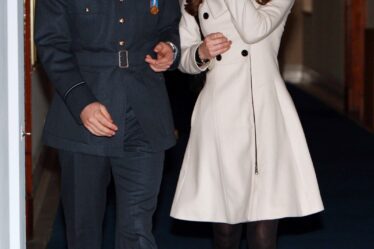
Divorce is complicated and expensive. There are convoluted legalities, logistical headaches and financial restructuring. Lawyers help with a lot of that, in exchange for nosebleed-inducing sums. But what about the various emotional quandaries that arise as you dissolve a marriage? How do you handle attending your kid’s tee-ball game if your ex will be there? What do you do when your estranged spouse is texting so much you can’t use your phone? If you send that angry email, will it hurt your legal case?
Enter divorce doulas.
Just as birth doulas offer emotional and informational support throughout a pregnancy, and help their clients navigate the labyrinthian medical system, divorce doulas promise to do the same throughout a divorce, and help their clients navigate the similarly impenetrable legal system.
Madeline Tuckfield and Courtney Cooper started working as divorce doulas in 2021. When the two first met – through their daughters, who were friends at school – they were both divorce experts, in a way. Cooper, 50, is a family law attorney in Utah, and Tuckfield, 32, is a former film producer who went through a divorce in 2019. At playdates, the women found themselves discussing the byzantine process of divorce.
Tuckfield found no map or guide to help her navigate her own divorce. “I was shocked at how you are sort of fumbling around in the dark,” she said.
As an attorney, Cooper was frustrated that there was only so much she could do to help clients. “Clients spend a fortune on attorney’s fees to talk about what’s going on for them mentally or what’s going on for them emotionally,” she said. While she considers herself a “nurturer by nature”, she would find herself thinking: “Wow, you’re burning through your retainer so quickly.”
So the two women started Divorce Doulas, a business that offers coaching sessions and online courses to help people going through high-conflict divorces. One course guides users through building a parenting plan; another through preparing for mediation. Both work on the business part-time.
Divorce doulas are growing in number. Indeed, the past few years have seen a growing interest in doula services generally, including birth doulas and end-of-life doulas. (The word “doula” comes from the ancient Greek word meaning “female servant”.) “These huge life transitions – into death, into motherhood – are sudden breaks in identity,” Tuckfield says. Doulas, she says, help with the emotions as well as the logistics of those breaks.
Divorce doulas have various backgrounds, qualifications and focuses, but there are no formal qualifications required, and they are not substitutes for attorneys. Several I spoke to had experience in family law or therapy work; others had trained as life coaches, another largely unregulated profession with no formal education or licensing requirements.
Tuckfield says she “loves more informal education pathways”, and that her expertise comes from the work she put into healing from her own divorce, including working with coaches, therapists and exploring various spiritual modalities. “I am not a therapist, I don’t have a ton of certifications per se, but I have been through an intense healing journey.”
Tuckfield and Cooper are careful to underscore that they do not offer their clients legal advice; they simply explain how the legal system works. They also help with the non-legal fallout that often accompanies divorce proceedings. Their work, they say, is more practical and focused than a therapy session, and more holistic and supportive than a conversation with your lawyer.
This kind of support can be crucial during divorce given that, according to the Holmes-Rahe Life Stress Inventory, a list of 43 stressful life events that can negatively impact a person’s health, “divorce” and “marital separation from mate” are the second- and third-most stressful experiences one can go through.
“When people are in the throes of divorce, it is a period of time where people – even if they have good friends and they have a support system – often get alienated,” says Dr Orna Guralnik, a clinical psychologist and psychoanalyst, and star of the Showtime series Couples Therapy. This alienation can be the result of people withdrawing from their social networks because of shame, judgment or a sense that their friends have to choose between them and their ex-partner.
Guralnik has never encountered divorce doulas in her work. But during a divorce, “it’s hard for people to disclose what they’re going through and to ask questions, so in that sense I can imagine this service is very helpful,” she said.
Hiring a divorce doula may seem like yet another expense in an already pricey process. The median cost of a divorce in 2023 is $7,000, according to a Forbes report. But because the costs of contested divorces (where the two parties can’t agree on the final terms of the divorce) can rack up quickly – legal and court fees, as well as the costs of any mediators, financial and real estate experts and child custody evaluators – the average cost of divorce is between $10,000 and $20,000.
The divorce doulas we spoke to argued that teaching their clients what to expect from the process and how to navigate it helps save money on legal fees. The Divorce Doulas’ courses, for example, cost up to $2,400, and one-on-one consults cost $75 to $150 an hour. By contrast, hourly rates for attorneys can easily surpass $400.
According to Tuckfield, they often explain to their clients what sort of information matters in court. If a client were to send their attorney a screenshot of every snarky text from their ex, for instance, the bills would soon pile up. But a divorce doula can look at the texts and say whether they’re worth bringing to the client’s lawyer’s attention, and also help them draft more effective responses to their ex.
Attorneys, Cooper explained, often don’t have the time, bandwidth, or skill set necessary to help clients work through communication difficulties with their ex-partner, for example. And even if they did, clients would have to pay a hefty price for that time.
As Tuckfield put it: “A lot of these divorces involve some really crappy things, and some really terrible things, but that’s not illegal.”
Claire Edwards, who works as an attorney and a divorce doula in Lafayette, Louisiana, also keeps her legal clients and her doula clients separate.
Edwards decided to become a divorce doula in 2021 after working with a birth doula. She’d had to jump through many logistical hoops during her second pregnancy, and remembers thinking that her legal clients must be dealing with a similar kind of disarray in their cases. So she trained as a life coach, and partnered with her friend Michelle Simon, who has a masters degree in psychology.
Melissa Kalil is a divorce coach who runs the company Shrinking Divorce, and has also described herself as a divorce doula. She said that the ability to share her own story with her clients is part of what drew her to coaching. “In therapy, you are discouraged as a therapist from self-disclosure,” she said. “With coaching, you can bring in your personal experience to a certain extent to see if the client will get any insight based on what you’ve been through. And clients love that because it makes them feel less alone.”
Harper, 46, who requested a pseudonym to protect her privacy, hired divorce doulas after a fraught family court appearance. She was six months into an increasingly acrimonious divorce from her ex-husband, and learned about divorce coaches and doulas while wandering the wilds of YouTube at night. She liked that her doulas had been through their own difficult divorces and could tell her what to expect.
“I knew that somebody was in my shoes at one point, and they survived,” she said. She said working with divorce doulas substantially cut down on her legal costs. “My attorney can vouch for me in court, but when it comes to the day-to-day and having to interact with this man, it really takes you down,” she said.
Kalil said that the American Bar Association recognizes divorce coaching as a valid conflict resolution process, though it does not mention doulas. The divorce doulas I spoke to were not opposed to helping men, but had primarily or exclusively worked with women. Divorce coaches and doulas often offer similar services, but it is perhaps easier for some to wrap their heads around hiring a coach than a doula, with all the feminine connotations that come with the word.
Coaches or doulas argue that they can be there for their clients in ways friends and family can’t. Harper, who is still working through her own divorce, said that even with her closest friends, “they can only be there for me in a certain season and hold capacity in a certain way because they have their own things they’re going through.” But a divorce doula? “It’s like having that best friend you’ve always wanted, but you’re paying for.”



